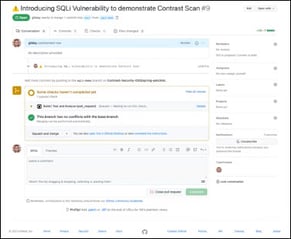SBOM
Understanding the Significance of a Software Bill of Materials (SBOM)
Understand SBOM ComponentsWhat is an SBOM (Software Bills of Materials)?
Software Bills of Materials (SBOMs) were born out of the need to provide a better way to accurately track and understand the origin, makeup and current state of a software package.
Whereas a Bill of Materials (BOM) is a structured list of the components needed to build a software package, identified by their quantity and source, an SBOM is a standardized way to identify the software components used by an application that needs to be tested, along with their supply-chain relationships. An SBOM lists all the open-source libraries used, other third-party proprietary libraries and some metadata about the custom code in the product.
SBOMs have recently gained popularity due to the increased need to understand what kind of libraries are being utilized as part of the development of applications. One such example came from a recent Executive Order by the Biden administration instructing various government agencies to take action to improve our nation’s cybersecurity. One of these actions was to provide guidance and standards on software bills of materials, given that they’re a great tool to search for, and resolve, vulnerabilities hidden within the various parts of the products used.
However, manually compiling and authoring an SBOM can be a maintenance nightmare. Creating a SBOM requires a user to manually comb through all libraries used in a project, to record their information and to package it in a very rigorous JavaScript Object Notation (JSON) format. One mistake can lead to hours of additional time to look for the issue.
How can Contrast Security help with creating SBOMs?
Creating SBOMs has never been easier with Contrast SCA! Automate the SBOM creation process within your workflow by integrating Contrast Software Composition Analysis (SCA) — a tool that enables users to create a .JSON file in mere minutes. Contrast SCA detects vulnerable dependencies (in Java, JavaScript, Python, Ruby, GO, PHP and .NET) within your Open-Source Software (OSS). Additionally, users can scan for vulnerable dependencies within their GitHub Continuous Integration/Continuous Deployment (CI/CD) pipeline by connecting with Contrast SCA GitHub Action for free.
Don’t believe us? Test it out yourself!
Contrast built its SCA functionality to equip developers with fast and accurate security for real-world applications.








